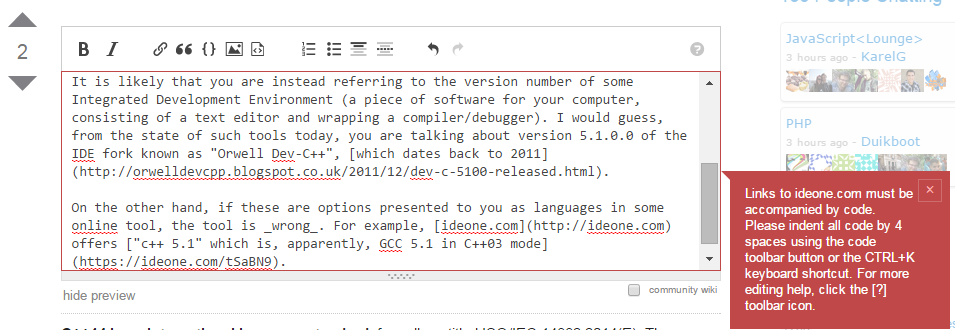I agree with @l4mpi that reputation limiting only goes so far:
- Stack Overflow can be gamed, and therefore reaching a reasonable reputation level (say 3k) can be done by sheer volume and a couple of rules of thumb (fastest gun in the west helps) in a reasonable amount of time
- Many "old" users (such as myself) have gained their reputation from aging answers and therefore may not be up-to-date on the recommendations
- Humans are failing regularly
There is also another (opposing) issue: the more restricted the privilege, the less usable it is, obviously.
As a result, there is a tension between:
- setting a sufficiently high reputation threshold for it to be meaningful
- setting a sufficiently low reputation threshold so that the ability to ask and answer is widespread enough
Given that the Stack Overflow system already tends to favor high-reputation users (they must be right, so they get upvotes), it seems that giving them more options to answer might further place barriers in front of newcomers.
On the other hand, I find that preventing an answer from being posted is too strong.
Why not simply advise the user? (changing must into should, and not blocking)
Potentially, too, maybe feed the answer into a review queue in case the warning is not heeded (so that humans check whether it really is an exception to the rule).
